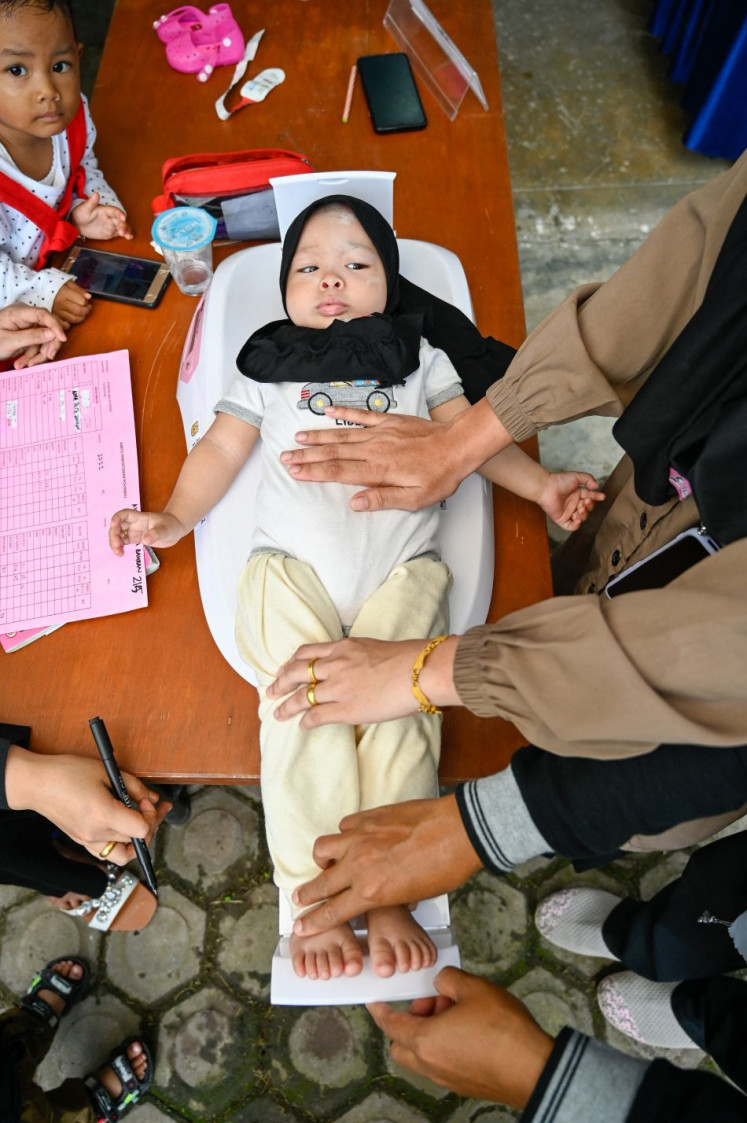Popular Reads
Top Results
Can't find what you're looking for?
View all search resultsPopular Reads
Top Results
Can't find what you're looking for?
View all search resultsWhat hotel industry needs to prepare for post-pandemic era
The tourism and hospitality sectors are among the hardest hit by the pandemic as a result of lockdowns and mobility restrictions.
Change text size
Gift Premium Articles
to Anyone
I
t has been 18 months since the first COVID-19 cases were found in Indonesia. A lot of progress has been made since - the government began a vaccination program in mid-January 2021 and aims to inoculate 70 percent of the population by the end of year.
The government is easing restrictions in more areas as new cases are declining since August 2021, which is good news for the tourism and hospitality sectors. With health protocols and safety measurements in place, domestic travel is steadily picking up again and the staycation trend is set to become even more popular.
Yet, Indonesia is not out of the woods yet. The tourism and hospitality sectors are among the hardest hit by the pandemic as a result of lockdowns and mobility restrictions. Hotel occupancy plummeted drastically last year, and many of them are still running on single digit occupancy today. Over 2,000 hotels were permanently closed during the pandemic, according to the Indonesian Hotel and Restaurant Association (PHRI). Therefore, those who are still in business need to quickly adapt to the new normal in order to survive the global crisis.
Given that hotels are places with a high degree of interaction among guests and staff, implementing comprehensive cleanliness and safety measures are essential to limit the potential spread of the virus. Measures may include the provision of hand sanitizers, increased cleaning of public spaces like the lobby, front desks, and elevators, as well as ensuring social distancing and adequate air circulation. The best practice of hygiene is crucial to win the trust of your guests.
An initiative like HygienePass aims to build confidence among travelers, so they feel safe and protected when staying at a hotel. HygienePass is an industry-wide cleanliness and sanitation certification program for the hotel sector that was first introduced in Indonesia in collaboration with the Indonesian Public Health Experts Association (IAKMI).
To obtain HygienePass certification, hotel operators or property owners need to implement and maintain various hygiene measures on a daily basis, from temperature checks for staff and guests, to the adoption of specific cleaning methodology to disinfect rooms and public areas. IAKMI will assess the hygiene process before awarding certification to hotel establishments.
RedDoorz has given HygienePass certificates to 1,200 hotels so far. On average, hotels saw a 10 percent increase of occupancy rate after implementing the program.
The pandemic is an eye-opener for the hospitality industry as it has forced industry players to be more agile and flexible in facing new challenges. This means embracing digitization more than ever to increase productivity and save operational costs.
Embracing technology does not mean that every hotel needs to build their own mobile applications overnight. Hotel operators can adopt digital features gradually. Investing in contactless check-in that allows guests to access their reserved room using mobile devices could be a good place to start. Contactless check-in feature is increasingly popular nowadays as it minimizes physical contact.
Another example of technological application in hotel management is the utilization of artificial intelligence (AI)-powered chatbots for customer service. Chatbots provide 24/7 smart assistance and communication gateway for guests; provides instant answers to common queries and improves overall customer experience. As a result, technology can help reduce customer support costs by 30 percent, according to IBM.
As contactless check-ins will become more mainstream in the near future, hotels should explore utilizing AI facial recognition to ensure safety for guests and staff.
In addition to chatbots, telephone bots could also be the future trend. The feature aims to deliver better, faster services for guests. For instance, if a guest needs extra towels, they can make a request from a phone call and will automatically dispatch the request to the housekeeper instantly. This automation plays an essential role in improving customer service in terms of accuracy, cost-effectiveness, and speed.
Property owners should embrace digitization in order to cater to changing demands in a post-COVID-19 world. Leverage applications and property management tools to access training, insights, and advice for property partners when needed.
Following the positive development in the battle against COVID-19, the travel industry is bound to bounce back stronger and grow faster than during the pre-COVID era. Thanks to the rapid digitization in the industry, hotels and restaurants are adapting to technology swiftly and people will be keen to travel as soon as the vaccination program is completed and restrictions are lifted.
The pandemic taught us the importance of innovation during the trying times. It also taught us that sometimes we are unable to run everything by ourselves, especially in customer-facing industries such as hospitality. Hotel owners who proactively leverage technology in both small and innovative ways, while keeping things agile and flexible, will likely stay ahead of its competitors.
The hospitality landscape is continuously evolving and partners should support one another to strengthen capabilities, especially when faced with unexpected challenges.
***
The writer is vice president operations, RedDoorz.










